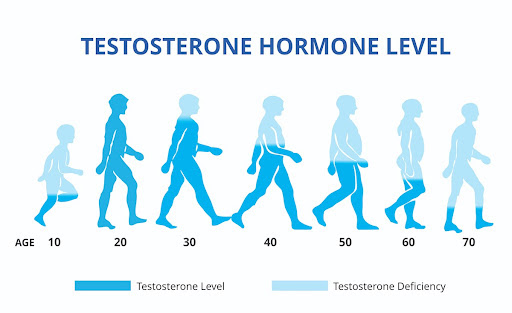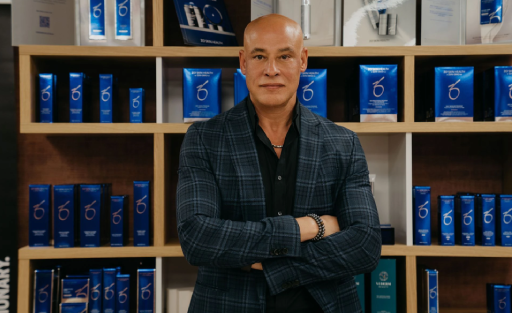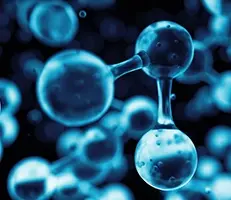
Understanding Low Testosterone

Testosterone, the primary male sex hormone, plays a crucial role in the development of masculine features such as enhanced muscle mass and facial hair. Apart from these, it also contributes significantly to bone density, mood regulation, sexual drive, and red blood cell formulation, thereby shaping men’s confidence, drive and determination in various aspects of their lives.
However, typically around the age of 25, men start to experience a dip in testosterone production, which can affect the optimal levels of this hormone necessary for essential physiological functions. This drop can lead to a range of symptoms, including:
- Erectile dysfunction
- Decreased libido
- Fatigue
- Decreased muscle mass
- Increased body fat
- Mood swings
These symptoms can significantly impact men’s overall well-being.
Causes of Low T
The decline in testosterone production isn’t solely due to the natural aging process. Medical conditions like Andropause and hypogonadism, commonly affecting aging males, have been identified as significant contributors to a remarkable decrease in testosterone levels. These conditions can affect not just your physical health but also your emotional and mental well-being. The impact of environmental factors & toxins are also tied to low testosterone. Like phthalates (plastics), endocrine disrupting chemicals EDC, abuse of steroid hormones, and other lifestyle factors like poor sleep and high stress.
Understanding the cause of your testosterone levels is the first step towards effective treatment. At Dr. Sabour’s TRT Clinic, we take a comprehensive approach to diagnosing and treating low testosterone, taking into account your individual symptoms, medical history, and lifestyle factors.
Symptoms of Low T
Decreased testosterone levels can manifest in a variety of physical symptoms that can significantly impact your quality of life. Some of the symptoms include:
- Chronic fatigue
- Difficulty focusing
- Inability to achieve an erection
- Insomnia
- Reductions in strength and muscle mass
These symptoms can significantly impact men’s overall well-being.
But the impact of lower testosterone levels isn’t just physical. Emotional symptoms such as:
- feelings of sadness
- irritability
- mood swings
- decreased libido
- fatigue
- lack of motivation
- social withdrawal
- anxiety
are also common.
Moreover, low testosterone can disrupt your sleep patterns, leading to poor sleep quality, which in turn can further reduce testosterone production, establishing a vicious cycle.
The Leading TRT Doctor in Los Angeles

At Dr. Sabour’s TRT Clinic, our objective goes beyond merely treating symptoms. We strive to identify and address the root cause of the problem. Dr. Sabour specializes in the field of hormonal optimization, with a particular emphasis on testosterone replacement therapy. His extensive experience in this area allows him to accurately diagnose and effectively treat male patients helping you regain your vitality and well-being.
Dr. Sabour has spent many years applying his vast expertise to create a specific protocol at The Men’s Clinic at UCLA. His commitment to his patients and his dedication to staying at the forefront of advancements in testosterone therapy make him a leading choice for men seeking help with low testosterone.
Medical Background and Specialties
Dr. Sabour is not just a specialist in reproductive endocrinology; he also has a solid foundation in family medicine. He completed his residency program at New York-Presbyterian Hospital, with a focus on obstetrics and women’s health. He is board-certified in family medicine, demonstrating his commitment to his field and his dedication to providing high-quality care to his patients.
His extensive knowledge and experience enable him to adopt a holistic approach, taking into account every aspect of a patient’s health.
Approach to Diagnosis
When it comes to diagnosing low T, Dr. Sabour takes a comprehensive approach. He starts with a thorough evaluation of the patient’s symptoms, medical conditions, and history to identify signs and symptoms of testosterone deficiency. This is followed by a physical examination, looking for physical signs such as:
-
-
- Decreased muscle mass
- Increased body fat
- Decreased bone density
- Decreased facial and body hair
- Fatigue and decreased energy levels
- Decreased libido and sexual function
- Low sperm count, decreased motility
- Decreased fertility
-
But the diagnosis doesn’t stop there. Dr. Sabour conducts a variety of specific blood tests to diagnose hypogonadism. These tests include:
-
-
- Hematocrit
- Red blood cell count
- Total testosterone
- Free testosterone
- DHEA
- FSH
- LH
- Estrogen
- Total and free prostate-specific antigen levels
- Cholesterol levels
- Any other relevant lab tests for the diagnosis of hypogonadism or hypogonadal men
-
These tests provide a comprehensive picture of your hormone levels, allowing Dr. Sabour to accurately diagnose your condition and develop an effective treatment plan.
Testosterone Replacement Therapy Options

Once low testosterone has been diagnosed, the subsequent course of action is treatment. At Dr. Sabour’s TRT Clinic, we offer a range of testosterone replacement therapy options to suit your individual needs and lifestyle, including:
-
-
- Bioidentical hormone replacement therapy
- Injections
- Gels
- Patches
- Pellets
-
The type of hormones we use is a crucial part of our approach. We utilize bio identical hormone replacement in our testosterone replacement therapy. These are derived from plants and are structurally identical to the hormones naturally produced by your body, making them a more natural and effective treatment option.
Bioidentical Hormone Replacement Therapy
Bioidentical Hormone Replacement Therapy (BHRT) is a natural and efficacious treatment for low testosterone, often referred to as natural testosterone therapy. It uses hormones that closely resemble those naturally produced by the human body, helping to alleviate symptoms related to low or imbalanced hormones, especially during life stages such as Andropause in men.
This therapy is personalized to each patient’s needs, ensuring the most effective treatment and the best possible outcomes.
Injections, Gels, Patches, and Pellets
Apart from BHRT, we also offer other methods of administering testosterone, including:
-
-
- Injections: typically administered into the thigh, glutes, or deltoid muscles, providing a steady release of the hormone into your body over time
- Gels: applied topically to the skin and absorbed into the bloodstream
- Patches: placed on the skin and deliver a continuous dose of testosterone
- Pellets: implanted under the skin and release testosterone slowly over a period of several months
-
Alternatively, there are several options for testosterone treatment, such as testosterone replacement therapy:
-
- Testosterone injections: These are administered by a healthcare professional and provide a quick and effective boost of testosterone. One common form of injection is testosterone cypionate.
- Testosterone gels and patches: These offer convenience and a consistent medication release, but they pose a higher risk of accidental exposure to others.
- Testosterone pellets: These are implanted beneath the skin to gradually dispense testosterone into the body, gradually dissolving over a period of 2-6 months.
Each of these options has its pros and cons, and Dr. Sabour will work with you to determine the best method for your needs and lifestyle.
Benefits of Testosterone Replacement Therapy

Testosterone replacement therapy offers a myriad of benefits, including:
-
-
- Physical enhancements
- Improved mental and emotional well-being
- Increased energy levels
- Enhanced libido and sexual function
- Improved muscle mass and strength
- Decreased body fat
- Improved bone density
- Increased motivation and drive Considering the testosterone replacement therapy cost, it is important to weigh these potential benefits against the investment.
-
Patients often experience a substantial improvement in their overall well-being, noticing a significant contrast from their initial condition prior to seeking treatment.
Testosterone replacement therapy has been demonstrated to yield specific physical benefits, including enhancements in:
-
-
- Bone health
- Sexual function
- Diabetes management
- Cardiovascular risk
- Mental health
- Cognition
- Muscle mass and strength
- Fat mass
- Overall sense of well-being.
-
The benefits of this treatment can truly be life-changing, helping you regain your vitality, confidence, and zest for life.
Physical Benefits of Optimized Testosterone Levels
One of the most significant physical benefits of testosterone replacement therapy is the increase in muscle mass. The therapy contributes to an increase in lean body mass, helping you regain strength and vitality. In addition to this, the therapy also promotes weight loss through the increase in muscle mass, allowing for a higher number of calories burned.
Apart from these changes, testosterone replacement therapy can also lead to:
-
-
- Improved sexual function
- Heightened energy levels
- Stronger bones
- Enhanced cardiovascular health
-
These physical benefits can help you feel more energetic, confident, and healthier overall.
Mental and Emotional Benefits
The benefits of testosterone replacement therapy are not just physical. The treatment can also yield significant mental and emotional benefits. Research has shown that testosterone replacement therapy can enhance cognitive function, leading to improvements in spatial abilities, memory, and overall cognitive performance.
Moreover, testosterone replacement therapy can also enhance your mood. It has been shown to alleviate symptoms of depression, and patients often report feeling happier and more content after starting therapy. The therapy can also help alleviate other mental health conditions including anxiety, low self-esteem, fatigue, irritability, and decreased concentration.
Monitoring and Adjusting Treatment
At Dr. Sabour’s TRT Clinic, we recognize the uniqueness of each patient, and that treatment plans require constant monitoring and adjustments to guarantee optimal outcomes. To ensure patient safety and monitor any potential risks and side effects linked to the treatment, healthcare providers at our clinic typically monitor:
-
-
- Testosterone levels
- PSA levels
- Blood chemistry
- Hemoglobin levels
-
Regular monitoring is essential to uphold patient safety and to ensure that the treatment is working effectively. It allows us to make necessary adjustments to your treatment plan, ensuring that you get the best possible results from your therapy.
Blood Tests and Check-ups
Blood tests and regular check-ups play a critical role in monitoring your progress during testosterone replacement therapy. We use a range of blood tests, including:
-
-
- Total and free testosterone
- Hematocrit
- PSA
- Estradiol
- HDL cholesterol
-
These tests, including a blood test, help us monitor your hormone levels and other health indicators.
These tests provide crucial information about the effectiveness of your treatment and help us make necessary adjustments to your therapy. Patients undergoing testosterone replacement therapy should undergo blood tests at a minimum of once every three months to facilitate thorough monitoring of their condition.
Adjusting Dosage and Treatment Methods
Dr. Sabour’s approach to adjusting dosage and treatment methods is based on a comprehensive evaluation of your symptoms, medical history, and individual goals and preferences. He takes into consideration a range of factors including serum testosterone levels measured after the initiation of therapy, potential improvements in erectile function, libido, anemia, bone density, lean body mass, and mood.
This personalized approach ensures the most effective treatment and the best possible outcomes. Dr. Sabour’s process entails:
-
- Measurement of serum testosterone levels 14 days after initiating therapy
- Adjustment of testosterone therapy dosage to attain a total testosterone level in the middle tertile
- Review and adjustment of treatment methods every two weeks to ensure the best therapeutic outcomes for patients.
Choosing Dr. Sabour's TRT Clinic in Los Angeles

If you’re grappling with low testosterone, the choice of the right clinic for your treatment becomes paramount. Dr. Sabour’s TRT Clinic in Los Angeles provides outstanding anti-aging and wellness services, catering to patients’ low testosterone levels and overall well-being, enabling them to achieve optimal health and appearance.
Our clinic offers:
- A state-of-the-art facility
- A warm, welcoming environment
- A team led by Dr. Sabour
- Dedication to providing the highest quality of care
- Commitment to your health and well-being
Personalized Care
At Dr. Sabour’s TRT Clinic, our belief lies in treating the individual as a whole, rather than just addressing the symptoms. Our approach to care is highly personalized, taking into account your symptoms, medical history, and individual goals and preferences.
This personalized approach allows us to optimize the dosage and delivery method, closely monitor your progress, and make necessary adjustments, ensuring effective and well-tolerated therapy. Patients have expressed positive testimonials about the personalized care at our clinic, commending Dr. Sabour’s expertise, assistance, and attentiveness.
Expertise and Experience
Dr. Sabour’s profound knowledge and experience in testosterone replacement therapy distinguish him in his field. He has been treating men for over 25 years, dedicating his practice to helping men regain their vitality and well-being.
His commitment to his patients, his dedication to staying at the forefront of advancements in testosterone therapy, and his personalized approach to care make him a leading choice for men seeking a more optimized life. Patients at Dr. Sabour’s clinic have praised his extensive expertise and the notable enhancements they have observed in their symptoms while under his treatment.
Summary
In conclusion, testosterone is a crucial hormone for men’s health, and having optimal levels can significantly level up your game. However, with the right treatment and care, you can manage these symptoms and regain your vitality and well-being. Dr. Sabour’s TRT Clinic in Los Angeles provides a comprehensive approach to diagnosing and treating those in need of hormone replacement therapy, offering a variety of treatment options, personalized care, and the expertise and experience of Dr. Sabour. Whether you’re just starting to experience symptoms or you’ve been dealing with low T for a while, we’re here to help you on your journey to optimal health.
Questions and Answers
The cost of TRT in Los Angeles is typically around $200-$300 per month, depending on the modality (pellets, vs gels vs injectible). which includes all necessary medications and supplies for treatment. We provide a straightforward monthly cost for the treatment. If using pellets, they are inserted in 4-month intervals. There are also very reasonable initial consultation fees and follow-up visits that can be discussed at the practice.
This depends on what you determine a cycle. Most men once on Testosterone replacement will want to stay on for several years due to the benefits (Cruising). This will change on a case by case basis.
TRT can be administered every 4 months (pellets), every week or bi-weekly (injectibles), or daily (gels).
Yes, in some cases, insurance will cover testosterone replacement therapy based on the individual’s testosterone levels, which can be determined through a simple blood test.
Results from TRT are noticed in as little as 2-3 weeks for an overall sense of well being and sex drive. This gives enough time for the testosterone levels to stabilize at higher levels and the physiological effects to occur.









